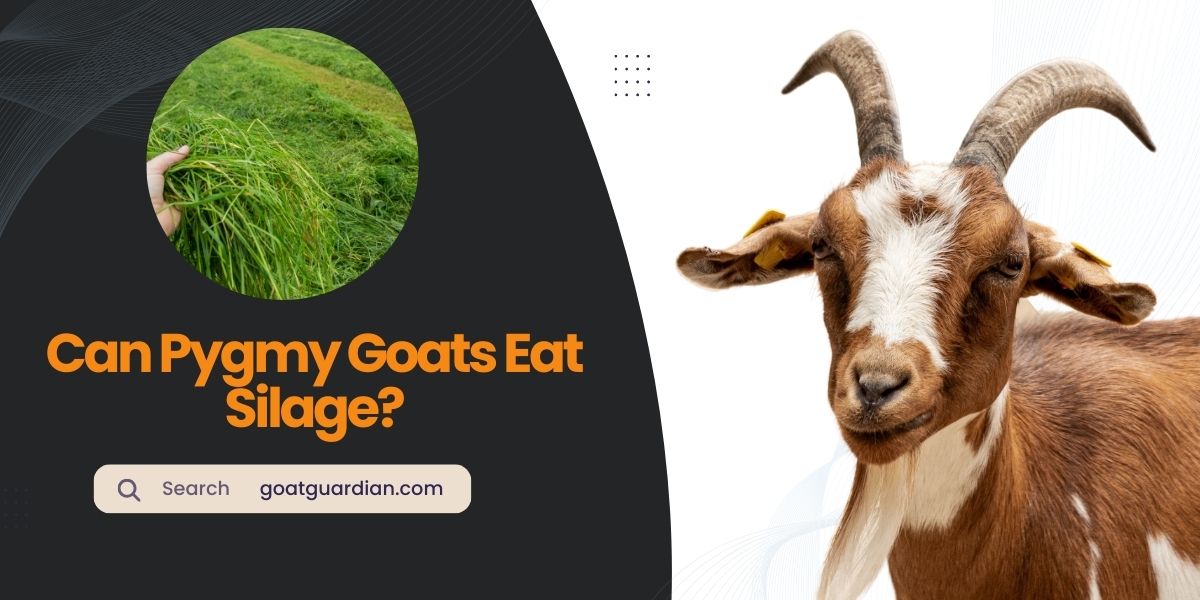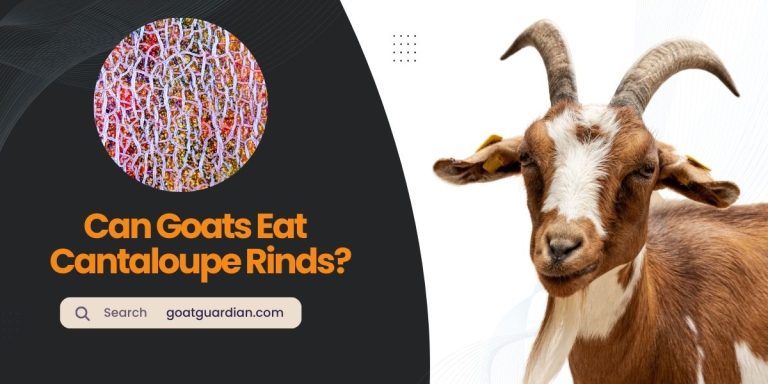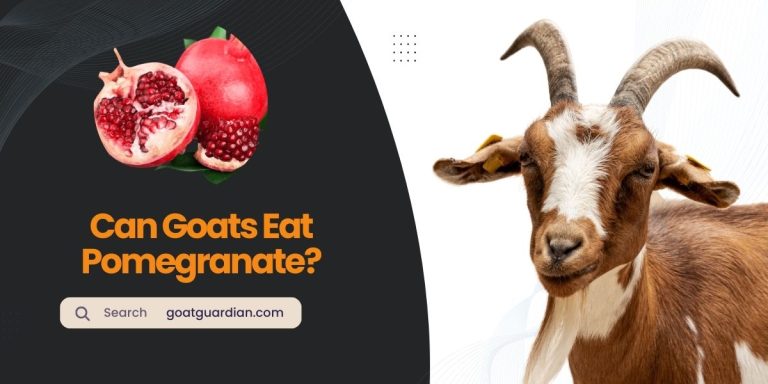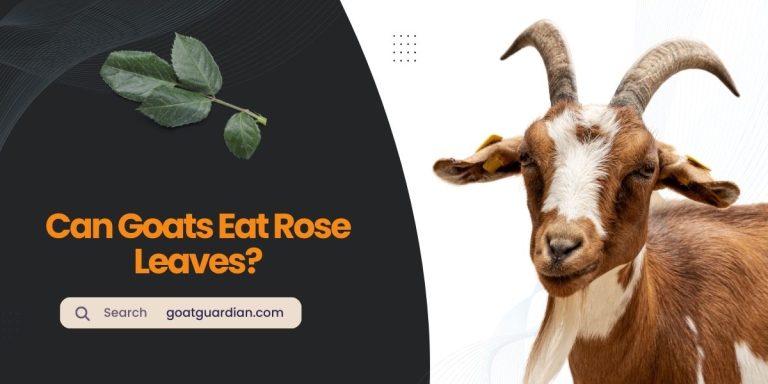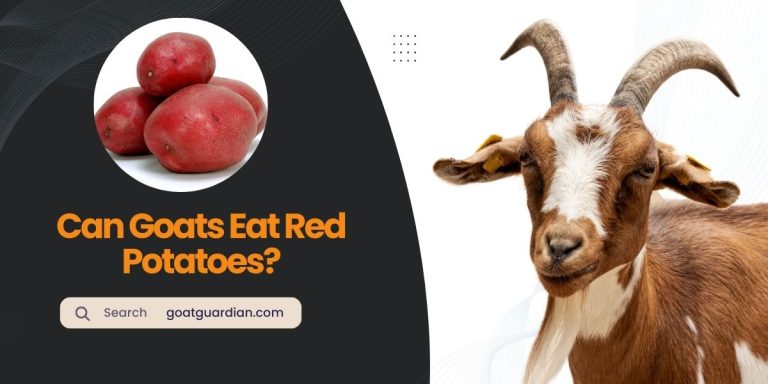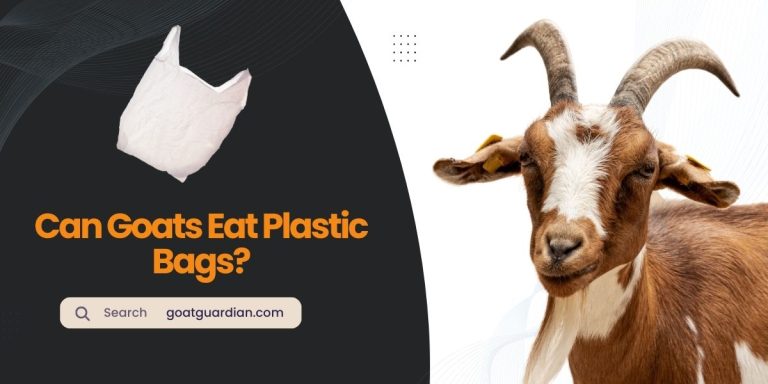Can Pygmy Goats Eat Silage? (with Alternatives)
Yes, pygmy goats can eat silage, but the quality and nutritional value should be considered.
Introduction To Silage For Goats
Feeding silage to goats is not inherently wrong, as goats, like all ruminants, can digest fermented feeds quite well. However, when considering feeding silage to goats, the quality and nutritional value of the silage, as well as its price, should be taken into consideration.
It is important to ensure that the grasses used to make the silage have not begun to grow mold or other fungi, especially for smaller breeds like Pygmy goats. Feeding silage can be a great option as a winter food for goats, keeping them healthy and happy.
Additionally, some goat owners believe that ensiling grass is a good alternative to baling when the weather doesn’t cooperate. However, it is important to be aware of the potential risk of listeriosis for goats when feeding them silage.
Benefits Of Feeding Silage To Pygmy Goats
Feeding silage to pygmy goats can have several benefits. Silage is a fermented feed that is easily digestible by ruminant animals like goats. It is a cost-effective alternative feed option, especially during the winter months when fresh forage may not be available.
Silage also provides increased nutrient availability to the goats, ensuring they receive a balanced diet. However, it’s important to ensure the quality and nutritional value of the silage before feeding it to the goats.
Mold or fungi growth can be harmful to pygmy goats, so it’s crucial to monitor the condition of the grasses used for silage. Overall, feeding silage to pygmy goats can be a beneficial and convenient option if done properly.
Considerations Before Feeding Silage To Pygmy Goats
Quality assessment of silage: It is important to evaluate the quality and nutritional value of silage before feeding it to pygmy goats. Ensure that the grasses used to make the silage have not begun to grow mold or other fungi. Moldy silage can potentially harm the goats’ health.
Risks and precautions associated with silage feeding: Although goats can digest fermented feeds like silage quite well, there is a risk of listeriosis in goats. They are highly susceptible to this bacterial infection. It is advisable to avoid feeding silage to pygmy goats to prevent health issues.
Potential health issues for goats: Feeding pygmy goats pasture-based diets rather than relying solely on silage ensures a varied diet and reduces the risk of nutritional deficiencies. They should be offered a balanced diet that includes a mix of grasses, hay, and other forages.
Silage Varieties Suitable For Pygmy Goats
There is nothing inherently wrong with feeding silage to goats. Like all ruminants, goats can digest fermented feeds quite well. However, as with all forages, quality and nutritional value, as well as price, should be the deciding factors when considering feeding silage to goats.
It is important to ensure that the grasses used for silage have not begun to grow mold or other fungi, as this can be harmful to pygmy goats and other small breeds. Some suitable options for grass silage include maize silage, red clover silage, and other protein crops like rape seed meal or soya bean.
It is always best to consult with a veterinarian or a nutritionist to determine the specific nutritional needs of pygmy goats and to ensure they receive a balanced and appropriate diet.
Feeding Management For Pygmy Goats On Silage Diet
There is nothing inherently wrong with feeding silage to goats. Like all ruminants, goats can digest fermented feeds quite well. However, as with all forages, quality and nutritional value, as well as price, should be the deciding factors when considering feeding silage to goats.
The risk of listeriosis is a concern when feeding silage to goats, so it is important to monitor the grasses for mold or other fungi. Ensuring proper intake and portion control is crucial to preventing any health issues.
It is also essential to monitor and adjust the silage diet based on the specific needs of the pygmy goats. Feeding haylage and some hard feed along with silage is recommended to provide a balanced diet.
Goats prefer browsing over grazing, so offering a variety of grasses and providing pygmy meal from reputable suppliers can contribute to the goats’ overall health and well-being.
Alternative Forage Options For Pygmy Goats
There is nothing inherently wrong with feeding silage to goats. Like all ruminants, goats can digest fermented feeds quite well. However, as with all forages, quality and nutritional value, as well as price, should be the deciding factors when considering feeding silage to goats.
Personally, I would never feed silage to a goat because of the risk of listeriosis. Goats are very susceptible. Pygmy goats and other small breeds should be allowed to eat silage only if the grasses have not begun to grow mold or other fungi.
Most diets use maize silage as the predominant ingredient with grass silage, red clover silage, sugar beet, and protein crops such as rape seed meal or soya bean.
Tips For Growing Hay For Pygmy Goats
| There is nothing inherently wrong with feeding silage to goats. Like all ruminants, goats can digest fermented feeds quite well. However, as with all forages, quality and nutritional value, as well as price, should be the deciding factors when considering feeding silage to goats. It is important to select silage that is not moldy or contaminated with fungi, as pygmy goats and other small breeds are more susceptible to these health issues. Feeding silage to goats should be done in moderation and as part of a balanced diet that includes a variety of grasses and other feeds. It is recommended to consult with a veterinarian or nutritionist to ensure that the diet meets the specific needs of pygmy goats. |
Considerations For Dairy Goats On Silage Diet
Feeding silage to goats is not inherently wrong as goats can digest fermented feeds quite well, just like all ruminants. When considering feeding silage to goats, quality, nutritional value, and price should be the deciding factors.
Pygmy goats and other small breeds should be allowed to eat silage as long as the grasses have not begun to grow mold or other fungi. Some goat owners believe that ensiling grass is a good alternative to baling when the weather doesn’t cooperate.
Silage can be a great option as a winter food, keeping goats healthy and happy. However, it is important to ensure a balanced diet by incorporating a grain cereal mixture along with silage. This helps in balancing nutrient intake for milk production.
Overall, feeding silage to goats can be a good option as long as quality and nutritional factors are considered.
Conclusion: Silage As An Option For Pygmy Goat Feeding
| There is nothing inherently wrong with feeding silage to goats. Like all ruminants, goats can digest fermented feeds quite well. However, as with all forages, quality and nutritional value, as well as price, should be the deciding factors when considering feeding silage to goats. Feeding silage to pygmy goats can be a viable option, but it is important to weigh the benefits and potential risks. Silage can provide a readily available source of nutrition, especially during the winter months. It can also help supplement the goat’s diet during periods of limited grazing or pasture availability.However, it is crucial to ensure that the silage is of good quality and free from mold or fungi. Pygmy goats, like other small breeds, are susceptible to health issues associated with contaminated feed. Regular monitoring and frequent sampling of the silage can help mitigate these risks.Implementing proper feeding management, such as gradually introducing silage into the goat’s diet, can also help prevent digestive issues and allow the goats to adjust to the new feed. Consulting a veterinarian or an experienced goat owner can provide valuable insights and guidance in transitioning to a silage-based diet for pygmy goats. |
Frequently Asked Questions For Can Pygmy Goats Eat Silage
How Much Silage Can A Goat Eat?
There is no exact answer to how much silage a goat can eat as it depends on various factors such as size, breed, and nutritional needs. It is important to consider the quality and nutritional value of the silage before feeding it to goats.
Ensure it is free from mold or fungi to avoid health issues like listeriosis.
Can Pygmy Goats Eat Haylage?
Pygmy goats can eat haylage, but it is important to ensure that the haylage is of good quality and not spoiled or moldy. Feeding haylage to goats can be a good option for winter food and can help keep the goats healthy and happy.
However, it is advisable to limit complications at birth by providing a balanced diet of haylage and some hard feed.
Can Sheep And Goats Eat Corn Silage?
Yes, sheep and goats can eat corn silage as long as the quality and nutritional value are considered. It is essential to ensure that the silage does not contain mold or fungi that can be harmful to the animals.
What Does Corn Silage Do For Goats?
Corn silage provides goats with nutrients such as fiber, which aids in digestion, and phosphorus, essential for energy metabolism. However, the quality and nutritional value of the silage should be considered before feeding it to goats. It is important to ensure that the silage is free from mold or fungi to prevent any health risks like listeriosis.
Conclusion
Feeding silage to pygmy goats can be a suitable option, as goats can digest fermented feeds well. However, it is important to consider the quality, nutritional value, and price of the silage before deciding to feed it to your goats.
It is also crucial to ensure that the grasses in the silage have not started to grow mold or fungi to prevent any risks. Ultimately, providing a balanced diet and considering the specific needs of your pygmy goats will help keep them healthy and happy.
